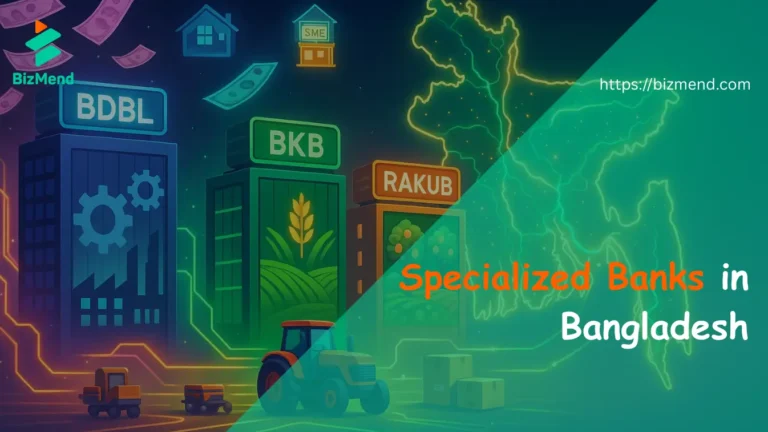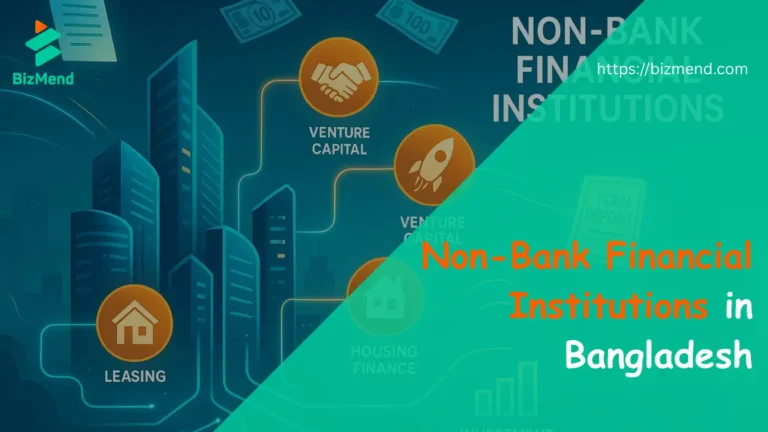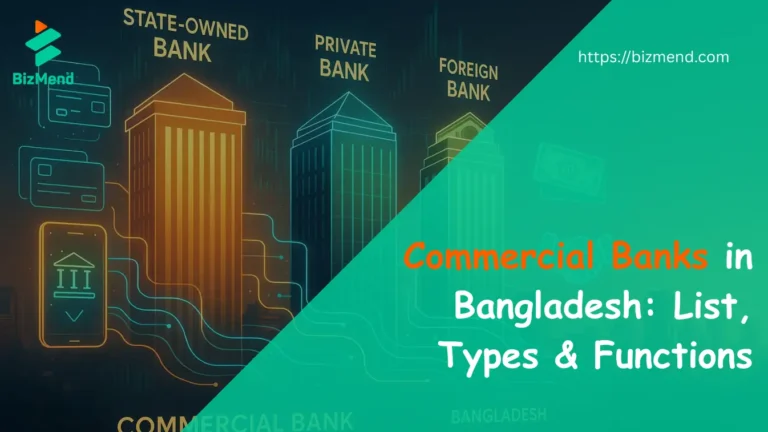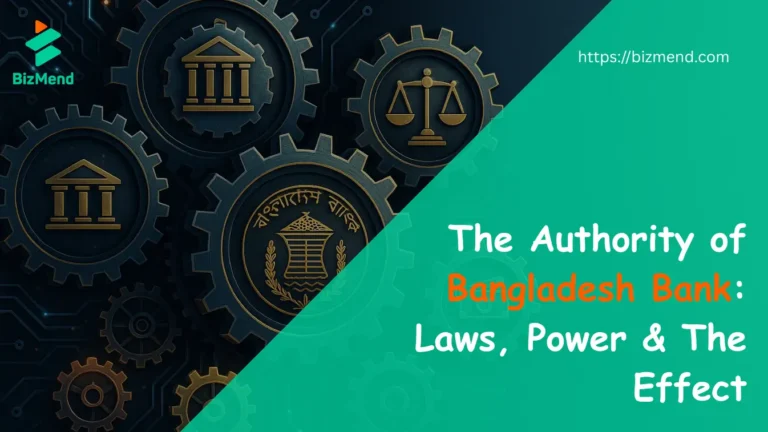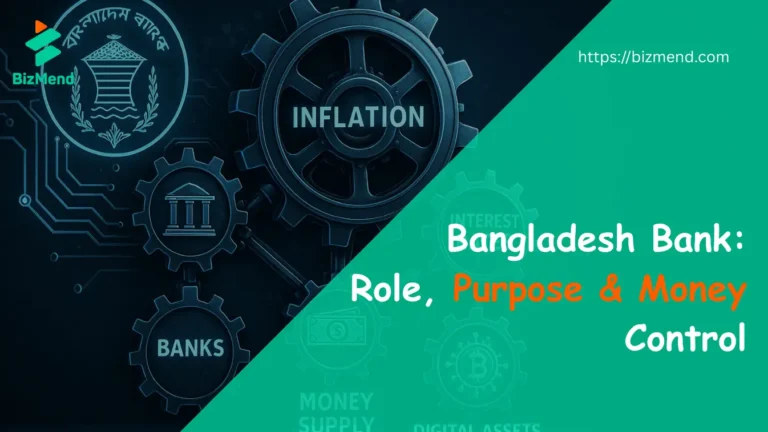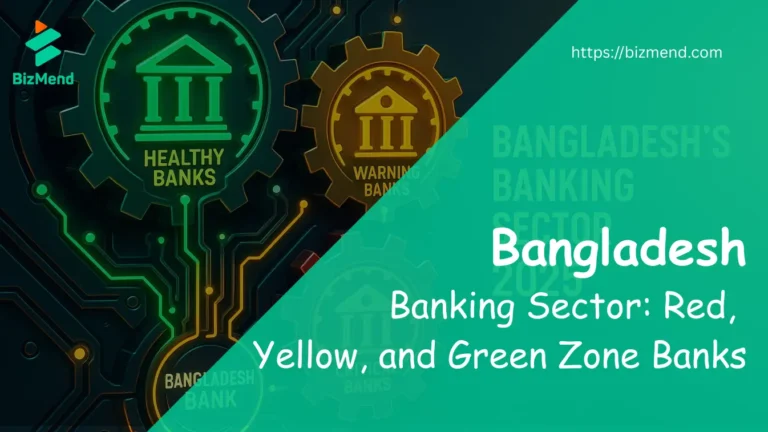“Foreign banks aren’t just safer. They have mastered the ins and outs of international trade.”
If you’re trying to figure out which foreign banks in Bangladesh actually work for international business, hey, you’re not the only one. Because if you’re a foreigner doing business here, you already get it: a lot of the real answers aren’t on Google. Whether it’s registering your company or finding out if your nominee director can open a bank account, some lessons just come with the territory.
But banking? That shouldn’t be one of them.
If you’ve already tackled your BIDA approvals, wrapped your head around company types and foreigner restrictions, and set up your private limited company, you’re likely now staring at the financial piece. And this is where a foreign bank can save you more than just time and translation. It can give you peace of mind.
So let’s walk through the top foreign banks in Bangladesh: what sets them apart, how they actually help, and why they might just be your smartest move in avoiding those business headaches no checklist ever warns you about.
So… What Exactly Is a Foreign Bank?
Let’s not overthink it. A foreign bank in Bangladesh is simply a bank that started elsewhere, but is legally operating inside Bangladesh under the supervision of the Bangladesh Bank. These aren’t “international apps” or offshore platforms. They have local branches, real licenses, and desks where you can actually walk in and talk to someone.
The difference? Their playbook is international. Their systems are used to foreign passports, cross-border transactions, and the kind of paperwork that confuses most local banks. So if you’re running a company with investors in Dubai and a holding entity in Singapore, they won’t raise an eyebrow. As they’ve seen it before.
Why Choose a Foreign Bank in Bangladesh?
Because doing business across borders already comes with enough grey areas, you don’t need your bank to add another.
Foreign banks speak your language; not just English, but the language of contracts, international transfers, dual-signatories, foreign invoices, and investor paperwork. They don’t ask awkward questions when your payment is coming from Singapore and your company’s TIN was just issued last week. They’ve seen it before.
More importantly, they don’t treat you like a walking exception.
If you’ve ever sat across a local bank officer trying to explain why your co-founder isn’t in the country or why your company name is in English, you already get it. Foreign banks just make that part easier.
They won’t solve every problem. But they’ll understand the ones you’re actually facing.
Pros & Cons of Banking with Foreign Banks in Bangladesh
Look, no bank is perfect. Even the foreign ones that “get you” come with their own quirks. So before you set up shop, here’s a quick gut-check of what you’re actually signing up for:
Pros:
- They know how international business works (and won’t ask why your invoice is in euros).
- Higher trust factor with foreign remittances and compliance.
- Better digital tools for global transfers, dual-currency handling, and documentation.
- Onboarding teams are often more comfortable with expats and foreign company setups.
Cons:
- Higher minimum balance requirements in many cases.
- Not as many physical branches or ATMs outside major cities.
- Paperwork can be extra structured; great for compliance, but not ideal if you’re in a rush.
- Some banks prioritize large corporations, so small businesses might feel a bit sidelined.
Bottom line? If you value clarity, predictability, and global readiness over ultra-fast service or small-business handholding, a foreign bank in BD might just be your safest bet.
Key Criteria for Selecting the Top Foreign Banks in Bangladesh
Let’s be real: no one chooses a bank because the logo looks nice.
When foreigners pick a bank in Bangladesh, it’s not just about who’s “international.” It’s about who actually understands how international business works here. Here’s what really matters:
- Experience with foreign-owned companies
If they flinch at your BIDA approval or ask, “What’s a nominee director?” Run.
- Multi-currency support
You’ll want to send and receive in more than one currency without ten phone calls.
- Compliance without chaos
Banks that know how to handle foreign tax IDs, remote directors, and capital repatriation without turning it into a three-month ordeal.
- Relationship-driven teams
You’re not just opening an account. You’re looking for people who will call you back when you’re stuck.
- Digital support that works
No one’s asking for a Silicon Valley portal. But if the mobile app crashes every time you log in, that’s a problem.
Pick a bank that’s seen foreign founders before, and didn’t panic.
Top Foreign Banks in Bangladesh
Not all foreign banks feel the same. Some are built for large corporations; others actually pick up the phone when a small business owner walks in with BIDA papers and ten questions. Let’s take a look at the following list of top foreign banks in Bangladesh:
Standard Chartered Bank (SCB)

Origin: United Kingdom
Website: www.sc.com/bd
In Bangladesh Since: 1948
- Bangladesh’s most established foreign bank.
- Known for business banking, international trade finance, and strong compliance infrastructure.
- Especially suitable for companies that have already sorted their BIDA approvals and need something global-ready.
Why it works: If you’re running payroll across borders or holding funds for export operations, SCB is often the go-to. Their back-end may be slow, but their structure is sound.
HSBC Bangladesh

Origin: United Kingdom
Website: www.hsbc.com.bd
In Bangladesh Since: 1996
- Strong digital infrastructure, globally recognized KYC practices, and support for multi-currency accounts.
- Perfect for foreign SMEs looking to scale.
Why it works: If you’ve just opened a business bank account (see: How to Open a Business Bank Account in BD as a Foreigner), HSBC makes it easier to move money internationally without triggering compliance headaches.
Citibank N.A.

Origin: United States
Website: www.citigroup.com
In Bangladesh Since: 1987
- Not for everyday entrepreneurs. Citibank focuses on large corporations, embassies, and development organizations.
- High security, high structure, and no retail presence.
Why it works: If you’re running a multi-million-dollar operation with a U.S. footprint, Citibank is your structured sandbox.
Commercial Bank of Ceylon (CBC)

Origin: Sri Lanka
Website: www.combank.net.bd
In Bangladesh Since: 2003
- Not as shiny as HSBC or SCB—but don’t overlook it.
- Friendly to SMEs, smoother onboarding, and helpful support teams.
- Winner of several “Best Foreign Bank in Bangladesh” awards.
Why it works: CBC is ideal for new foreign-owned companies still setting up their base (see: How to Register a Private Limited Company in BD as a Foreigner). If you’re working with local partners or suppliers, CBC tends to be less bureaucratic.
Woori Bank

Origin: South Korea
Website: go.wooribank.com/bd
In Bangladesh Since: 1996
- Initially focused on Korean expats and industrial zones, but now expanding to wider markets.
- Trade finance and SME support are solid, though digital services are more limited.
Why it works: A good fit if you’re manufacturing, exporting, or operating from EPZs. Woori understands project-based structures—which is useful if you’re navigating BIDA investment approvals.
State Bank of India (SBI)

Origin: India
Website: onlinesbi.sbi
In Bangladesh Since: 1975
- Offers smoother INR transactions and works well for Indian nationals setting up joint ventures or trade companies.
- Their paperwork process can be long, but they’re culturally aligned and familiar with Indian-Bangladeshi business flows.
Why it works: If your expansion is regional—and you’re building across India and Bangladesh—SBI helps simplify cross-border complexity.
Bank Alfalah Limited

Origin: Pakistan (Owned by Abu Dhabi Group)
Website: www.bankalfalah.com
In Bangladesh Since: 2005
- You won’t see big ads or glossy billboards, but Bank Alfalah has quietly earned its place in Bangladesh’s banking scene—especially among businesses that prefer structure with subtlety.
- With roots in Pakistan and backing from the UAE’s Abu Dhabi Group, this bank blends South Asian familiarity with Gulf-standard credibility.
- It offers everything from SME-friendly loans to trade services and Islamic banking options—with a tone that’s less corporate, more “we get where you’re coming from.”
Why it works: If your business model leans toward halal trade, modest fashion, ethical financing, or you simply want a bank that offers Shariah-compliant solutions without making you feel like you’re asking for a favor—Alfalah gets it. It’s also practical if you are bridging operations across Pakistan, the Middle East, and Bangladesh. No need to explain your model twice—they already speak the language.
Quick Note: Why Foreign Banks Feel More… Familiar
- They accept foreign documentation more easily.
- They’re less likely to ask “Why is your co-founder abroad?”
- Their onboarding teams speak global business.
- And yes—they’re usually easier to deal with when you’re juggling taxation essentials in Bangladesh.
But don’t walk in expecting a red carpet. These banks still require:
- A registered company
- Clear investment documentation
- Trade license
- TIN
- A local signatory or representative
Don’t Just Open an Account—Open a Relationship
There’s a reason many foreigners choose foreign banks in Bangladesh. It’s not always about prestige. It’s about predictability.
When your address is in Gulshan, your co-founder is in Dubai, and your compliance partner is helping you file your Compliance in BD, you need a bank that doesn’t make you feel like an exception.
So don’t just open a business bank account. Open a relationship with a bank that already understands what you’re building.
FAQs on Foreign Banks in Bangladesh
Can foreigners open accounts at foreign banks in Bangladesh?
Yes, but you must do it under your registered company. Personal accounts may require resident permits. Business accounts need trade licenses and proper documentation.
Which foreign bank is best for new businesses?
CBC and SCB are popular among newly registered foreign companies. HSBC is great if you’re already operational and scaling internationally.
Do I need BIDA approval to open a bank account?
If your company is foreign-owned, yes—BIDA approval is usually required before opening any corporate account.
Are foreign banks better than local ones?
Not always. But they’re more aligned with global documentation standards and international business needs.
Can I apply online on Foreign banks in Bangladesh?
Some banks (like HSBC) allow you to begin the process online, but you’ll always need in-person KYC to finalize it.






